6 trends to watch for at CES 2024: AI everywhere, Meteor Lake laptops, smart appliances, metaverse, and more
A really big show
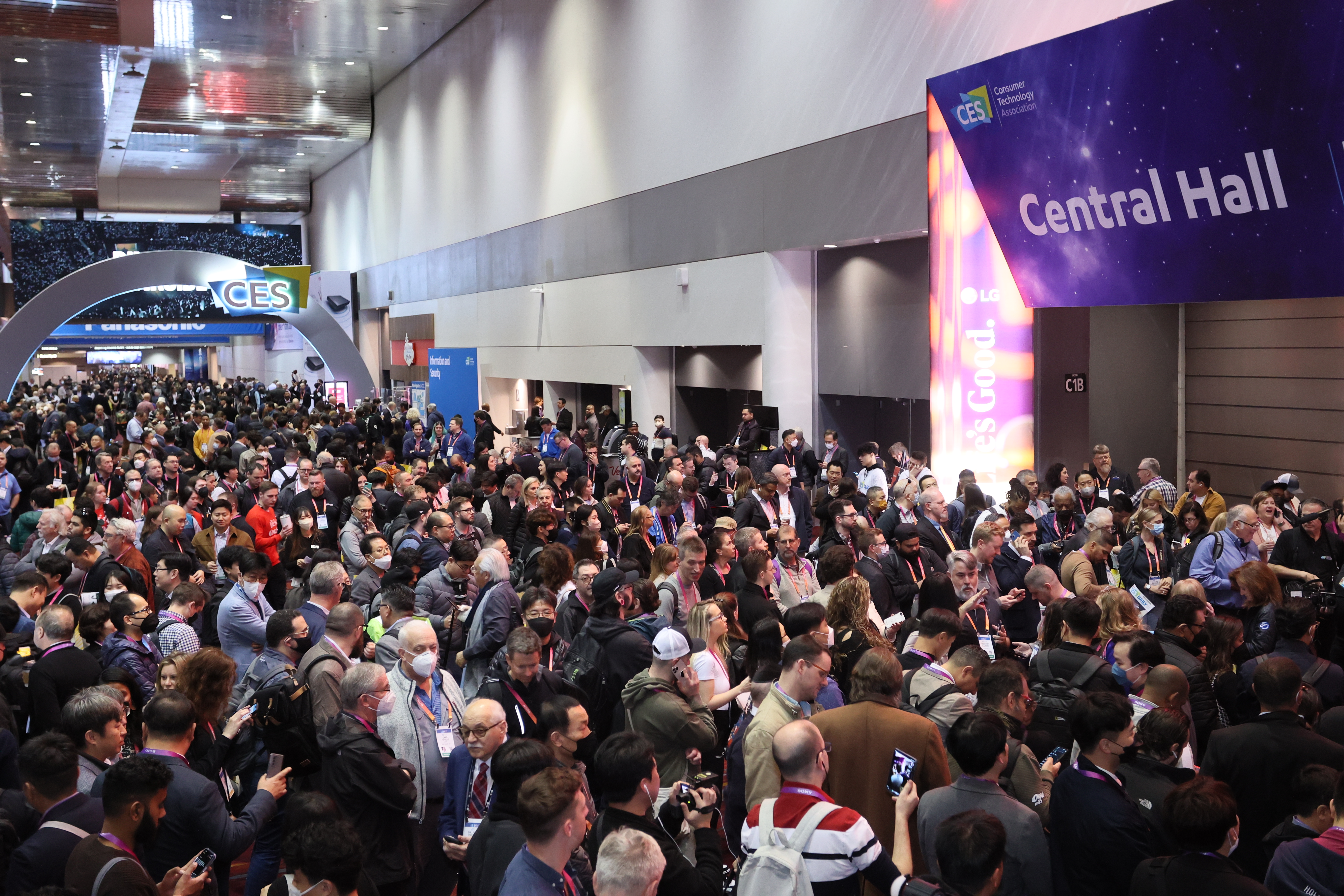
The future is just around the corner -- and you'll be able to catch a peek of it in early January. Every year, the technology industry gathers in Las Vegas for CES, an annual tech industry expo where the year ahead in products is previewed, tested, and talked about. It’s like catnip for the technology world.
Traditionally, CES highlights include flat-screen TVs, soundbars, and other consumer electronics, and for the curious, TechRadar has a great round-up of what to expect from CES 2024. I don’t foresee much revolution in those traditional spaces landing at this year’s show. But that doesn’t mean innovation has slowed; here’s my take on the biggest trends that will shape the show, and the products and innovations I’m expecting to see – as well as those I’d like to see more of.
And since CES is also the launchpad for more hype than a rap record, I’ve highlighted a few areas where the hot air will be hottest.
1. AI everywhere – especially on your laptop
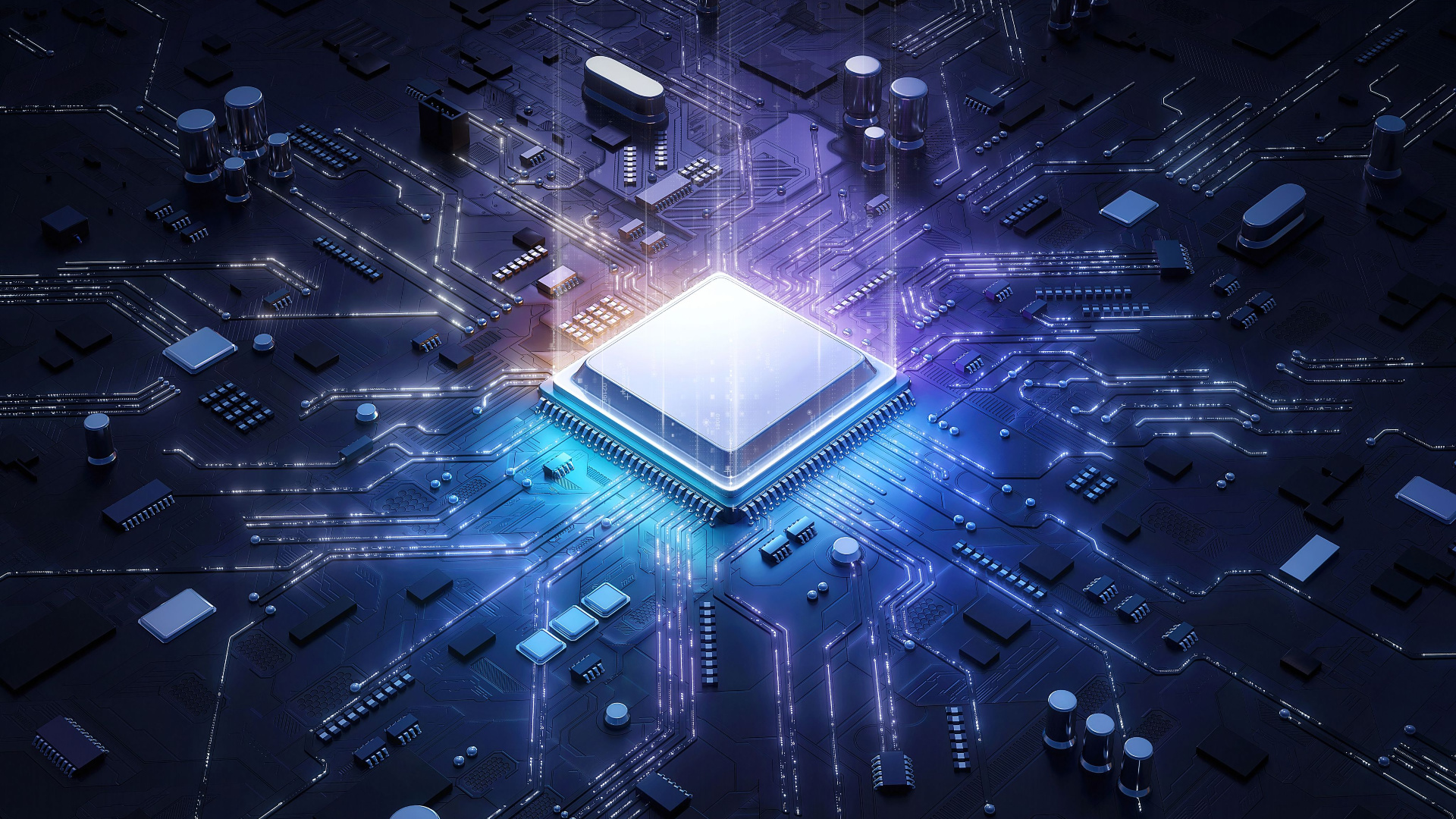
Artificial Intelligence has been driving consumer electronics for ages now. Half a decade ago, I spoke with LG Electronics President and CTO I.P. Park, who told me AI could simplify complicated systems and help people get more out of their gear. “When you’re driving a modern luxury car most people are probably using only five percent of the entire feature set of the car,” he told me. “Because it’s too complex … what AI will hopefully do is solve the problem of using complex systems so that the devices become smart. And smart devices will know exactly what you want,” Park added. Everything LG makes would include it, he said.
So how much progress has been made in the last five years? Not all that much, I’d argue. Until last year, that is, a watershed period that debuted generative AI (for better or worse), chatbots, and Microsoft’s announcement that it would bake AI into a revolutionary new version of Windows expected for sometime next summer. They’ll probably call it something horrible like Windows 1124H2, but think about it as Windows 12. And at CES 2024, AI PCs built for it will be all over the place.
On Dec. 14, Intel unveiled Meteor Lake, its newest chipset, which includes for the first time a dedicated AI processor component, called an NPU or Neural Processing Unit. AMD beat them to the punch, announcing at last year’s CES the Ryzen 7040 notebook processors, which incorporate “AMD XDNA AI” – again, dedicated AI support. And at CES this year, we expect most major laptop manufacturers will unveil their AI PC lineups. Watch for huge, splashy reveals from Lenovo, HP, Dell, Acer, Asus, MSI and more.
2. Appliances get Serious AI

But what about Park’s comments? Is your vacuum today AI-powered? Does your iron know just how much steam is too much? If AI is in all things, surrounding us like the Midi-chlorians that let Luke use The Force, why aren’t our appliances better? Yes, today's washers and dryers use AI to sense humidity levels and adjust accordingly. But is this AI? Does this require intelligence or merely better sensors? And no standard-size oven can, for example, detect whether your Thanksgiving turkey is perfectly moist.
Get daily insight, inspiration and deals in your inbox
Sign up for breaking news, reviews, opinion, top tech deals, and more.
Will CES 2024 change that? Doubtful, at least for traditional, full-size devices. Although fascinating advances continue: I’m particularly impressed by Whirlpool, which will be showcasing a range of new appliances with SlimTech insulation, a proprietary material that can replace the bulky polyurethane foam in the walls of your current fridge. SlimTech can reduce the wall thickness by up to 66 percent -- allowing for up to 25 percent more capacity. Amazing! In 2023 LG showed off MoodUp, a color-changing fridge meant to one-up Samsung’s beautiful Bespoke French door refrigerators. What will this year bring?
Apparently, AI’s secret power is broiling a better T-bone.
To see the biggest changes, narrow your gaze: Look to the smaller, smarter countertop devices that have proliferated in recent years from June, Brava, and Anova. Those devices have limited AI built-in, nothing to rival the advances seen over the last year, but a ton more than traditional kitchen gear. And then there’s Seer Grills, which recently launched Perfecta, billed as “The World’s First AI-Powered Grill.” Apparently, AI’s secret power is broiling a better T-bone. And we’ve seen remarkable new devices from GE’s Profile division, which recently unveiled a countertop nugget ice maker. Will the new year bring anything new? We’re looking at you, GE…
And one space in particular is thriving: robot vacuum cleaners. With household names like Eureka and Roomba competing against lesser-known names like Narwal and Ecovacs, it’s going to be a messy fight. (See what I did there?) And there’s plenty of innovation: At IFA 2023 in Berlin, Switchbot launched a vacuum that connects directly to your water pipes, letting it wash itself clean before going back to work for you. And since Matter unveiled support for robovacs in 1.2 of its sorta useful spec, they should hopefully work more seamlessly with all of your other digital gear. Maybe Matter will matter?
3. Smarthome: Here comes the smart grid
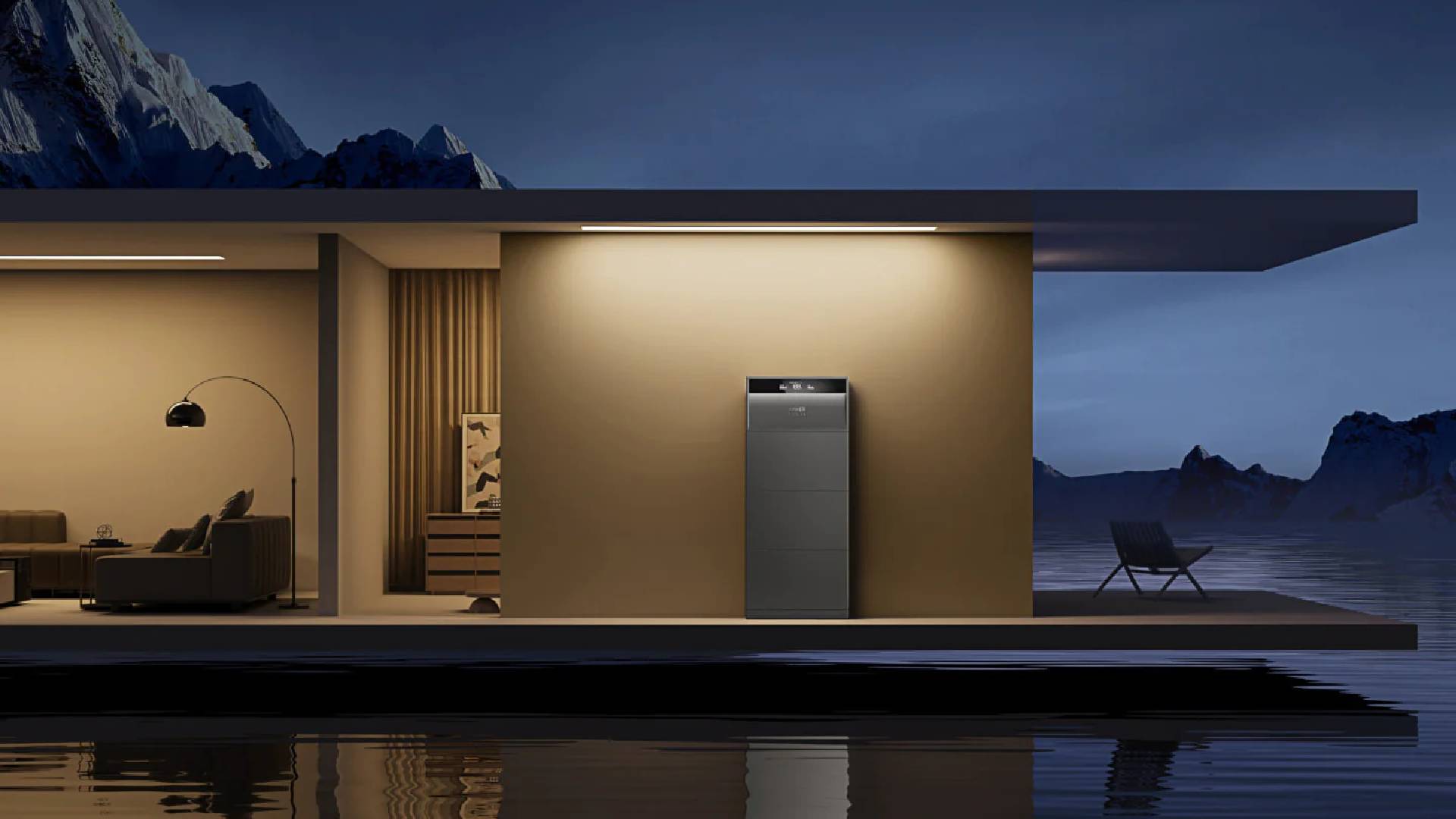
Speaking of the smarthome, the industry is evolving.
Whole-home chargers and solar power cells have become an enormous focus for the consumer electronics industry, as the power industry – at last – gets smarter. It’s a logical advancement from companies that make batteries and chargers, starting with powerhouse names like Anker, which unveiled the Solix brand in June and will likely reveal more in the lineup at CES. Think of Solix and its ilk as giant battery packs for your house. Its largest capacity 180kWh array can apparently keep the lights on in a typical house for a whole week, which could come in handy if your local grid is impacted by extreme weather.
Look for news from Jackery as well, which was named to TIME’s Best Inventions of 2023 for its Solar Mars Bot – how cool is that? And there are dozens of companies looking at the home battery space, from big names like Schneider Electric and Bluetti to newcomers like Exeger and Ugreen and Goal Zero (and its $4,000 YetiPRO portable power station) and more.
It’s also a place for new brand names to flourish like flowers under a solar-powered grow lamp (which you can also find at CES). And innovation in general: Samsung recently added the first ever EV charger to its SmartThings platform, letting users better manage and monitor the charge in their electric vehicle, as well as a partnership with Eve Energy to let you keep tabs on how much juice everything in your home is sipping.
One interesting twist on the standard battery comes from Palo Alto, California, start-up Coplanar, which sells portable hydrogen power generators and whole-home energy products. It’s a renewable clean energy source using a chemical reaction rather than combustion, producing only water and heat as byproducts. Hydrogen power…what could go wrong?
4. Cars go electric, not autonomous
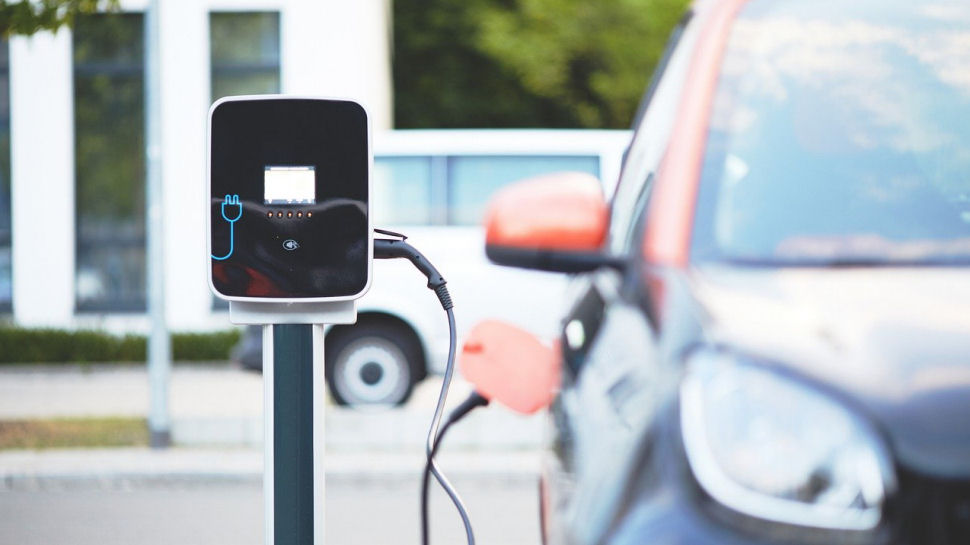
While the worlds of tech and automotive seem to be racing at each other faster than Vin Diesel and his pals, the market for self-driving cars has already burst like a punctured tire. GM’s Cruise self-driving car company lost $1.4 billion in 2022 alone, and Ford took a drubbing, writing off $2.7B in 2022 and noting in its earnings report that it would shift focus from the Level 4 autonomous systems being developed by Argo AI to driver-assistance tech such as adaptive cruise control and lane-switching assistance.
The market for self-driving cars has burst like a punctured tire.
This means there will be tons of real-world tech on display at CES 2024, actual stuff you can actually buy today for your next actual car. Will Chrysler and Tesla continue to lead the driver-assist world? Only time will tell.
Of course, EVs will be all over the show, and rightly so. 2020 saw around 3 million in global EV sales; by 2023, that had rocketed to 10.25 million, and the number is predicted to hit the 17 million mark in five years. Electric vehicles are moving towards the software-defined vehicle (SDV) category, which means much of the vehicle's functionality (and even its powertrain) can be tweaked and updated via over-the-air updates (OTA). Ford recently discussed its plans for SDV features. Look for other makers to detail similar plans at CES.
Meanwhile, tech companies continue chomping at the bit to get into cars. Chinese companies like Xiaomi and Huawei are jumping headfirst into this space, and we expect to hear from numerous other electric car startups, including Lucid, Polestar, Fisker, and Faraday Future. Okay, maybe NOT Faraday Future.
5. Health-tech for women rules the world

The intersection of health and tech is a key space for CES, which explains the explosion in panels, keynotes, and conversations at the show on the topic. Among those speaking at CES are Linda Anegawa, Noom’s Chief of Medicine; Jesse Ehrenfeld, President of the American Medical Association; Stephen Hoge, President of Moderna; and Gail K. Boudreaux, president and CEO of Elevance Health.
They reflect all aspects of the wide world of health, from award-winning pacemaker innovations from healthcare giant Abbott to smart beds, health monitors, fitness gadgets, digital doctors, and more. But one space stands head and shoulders above the rest: women's health.
Sometimes called femtech, innovations to help monitor, maintain, and improve women's health have been the source of many fascinating innovations lately. For just one example, consider the Evie smart ring from Movano Health, which debuted at CES 2023 and uses AI to connect the dots between menstrual cycles and sleep habits, among other things. In August the company filed for FDA clearance as a medical device; it finally ships in January, the company says.
And expect day-to-day innovations in beauty tech, where smart mirrors and makeup aides are robotic wonders. L’Oreal has an enormous history of innovation here: Last year it unveiled a computerized makeup applicator and the first at-home electronic eyebrow applicator. In 2017 it was a smart hair brush that we called “the combing coach you never knew you wanted.” What will 2024 bring?
There's tech for all genders, of course. Withings has made a name for itself in the smart health space: The company invented the connected blood pressure monitor in 2011. And it continues to innovate on health gadgets: We have it on good authority that the company plans a multipurpose handheld device that looks intriguing for 2024. And we were impressed by NuraLogix at CES last year, which fairly accurately measures your blood pressure simply by taking a 30-second video. We’re hoping this tech becomes a functional product in 2024.
If you’re walking the show floor, look for an array of smart beds and massage chairs that always manage to give me a jolt of fresh energy. (Why don’t I have one of these at home yet?)
6. Hypewatch: VR/AR/MR, 6G and more
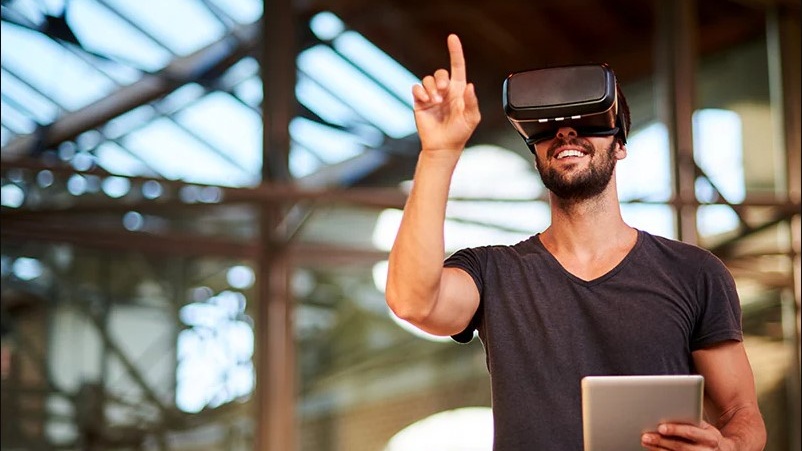
Is it silly? Maybe! Is it over-hyped? Absolutely! Dare we call it just plain vanilla preposterous? You bet we do! But there are nonetheless advancements and work being done in augmented reality that might lead to an augmented future – with or without Mark’s Meta.
Soundscape makes a musical metaverse based on Unreal Engine 5, supporting avatars for an interactive VR music festival, for example. The company recently announced partnerships with GRiZ, Slash, Evanescence, Goose, and more, and promises additional partnerships with prominent labels before and after the launch at CES 2024. Heck, I’d like to see a virtual concert. And VR for healthcare is absolutely a positive use of this technology. From immersive virtual reality and augmented reality for PTSD treatments to haptic feedback that can help restore lost senses, there’s some reality amid the muck.
AR is also just fun, with VR for cars, AR for astronauts, and MR for everything in between. But will it touch your life any time soon? We really, really doubt it.
Meanwhile, watch out for big companies to slip the term 6G into presentations and displays. We know what you’re thinking … and we’re right with you.
You might also like
After 25 years covering the technology industry, Jeremy Kaplan is a familiar face in the media world. As Content Director for TechRadar, he oversees product development and quality. He was formerly Editor in Chief of Digital Trends, where he transformed a niche publisher into one of the fastest growing properties in digital media. Before that, he spent half a decade at one of the largest news agencies in the world, and cut his teeth in magazine business, long before the birth of the iPhone. In 2019, he was named to the FOLIO: 100, which honors publishing professionals making an industry-wide impact.